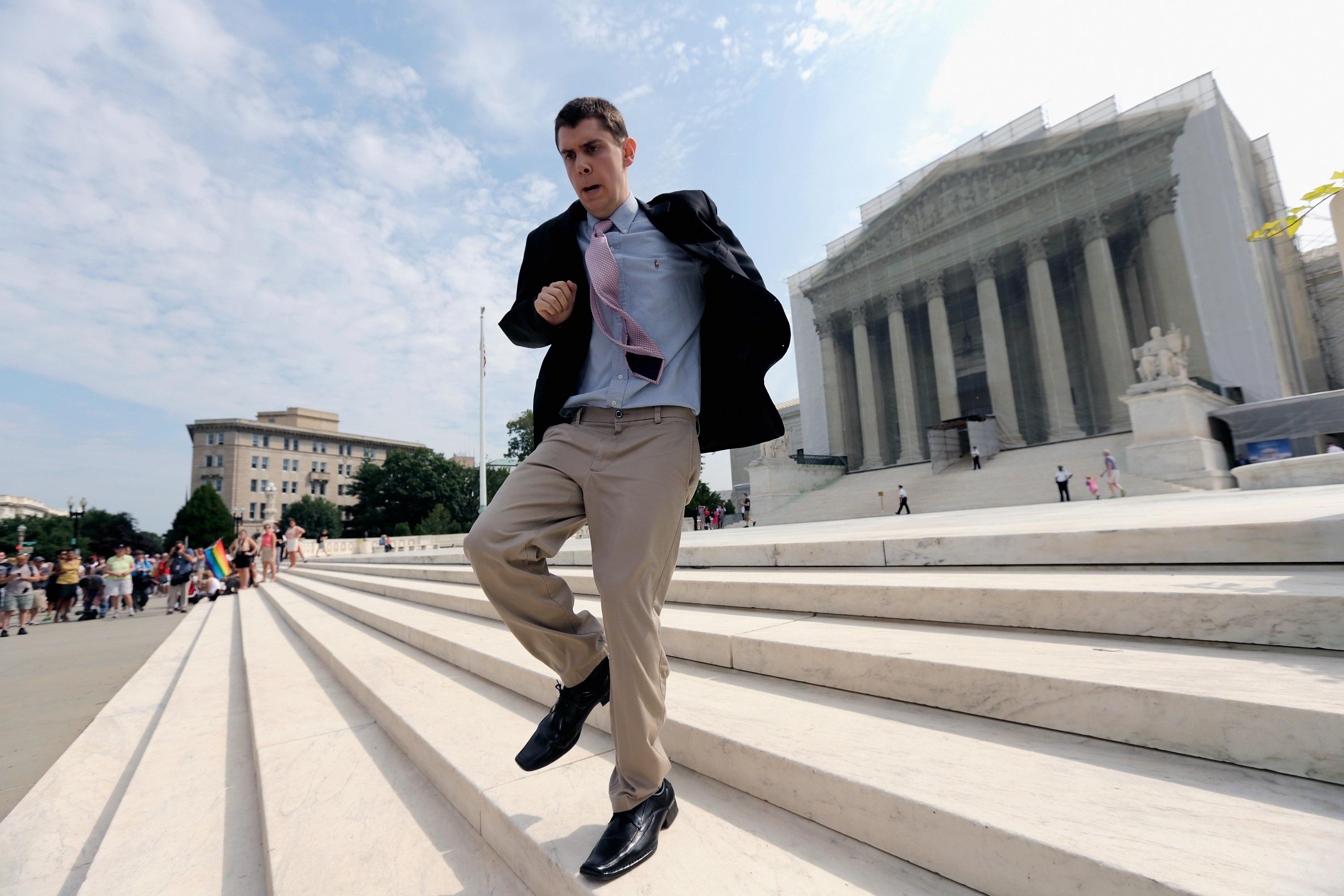The Supreme Court got down to business Tuesday, handing out its second major decision in as many days. Unlike its narrow decision on affirmative action from Monday, however, today’s decision appears to have much more sweeping consequences. The high court struck down Section 4 of the Voting Rights Act in a 5–4 decision on Shelby County v. Holder.
The Associated Press with the instant analysis:
The Supreme Court ruled Tuesday that a key provision of the landmark Voting Rights Act cannot be enforced unless Congress comes up with a new way of determining which states and localities require federal monitoring of elections.
The justices said in 5-4 vote that the law Congress most recently renewed in 2006 relies on 40-year-old data that does not reflect racial progress and changes in U.S. society.
The court did not strike down the advance approval requirement of the law that has been used, mainly in the South, to open up polling places to minority voters in the nearly half century since it was first enacted in 1965. But the justices did say lawmakers must update the formula for determining which parts of the country must seek Washington’s approval, in advance, for election changes.
And the always awesome SCOTUSBlog with what the decision means in practice for Section 5, another pillar of the voting law:
Today the Court issued its decision in Shelby County v. Holder, the challenge to the constitutionality of the preclearance provisions of the Voting Rights Act. That portion of the Act was designed to prevent discrimination in voting by requiring all state and local governments with a history of voting discrimination to get approval from the federal government before making any changes to their voting laws or procedures, no matter how small.
In an opinion by Chief Justice John Roberts that was joined by Justices Scalia, Kennedy, Thomas, and Alito, the Court did not invalidate the principle that preclearance can be required. But much more importantly, it held that Section 4 of the Voting Rights Act, which sets out the formula that is used to determine which state and local governments must comply with Section 5’s preapproval requirement, is unconstitutional and can no longer be used. Thus, although Section 5 survives, it will have no actual effect unless and until Congress can enact a new statute to determine who should be covered by it.
Chief Justice John Roberts, who penned the majority opinion, wrote that Congress “may draft another formula based on current conditions.” Of course, given the current climate on Capitol Hill, that’s unlikely to be an easy feat.
Slate will have more on the major decision shortly. The high court is expected to be back in action tomorrow morning at 10 a.m., when we expect to finally learn the justices’ decisions on Prop 8 and the Defense of Marriage Act.
Update: Some insta-analysis from Slate:
